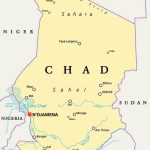By Fatima Tijjani
Amid this backdrop of challenges, the Northeast Development Commission (NDC) was established as a beacon of renewal, with a mandate to restore the region’s socioeconomic fabric and rebuild its infrastructure.
The NEDC was born out of necessity in 2017 following the Federal Government’s realization that the destruction caused by insurgency demanded a coordinated response. Entire communities were displaced, public institutions destroyed, and livelihoods disrupted.
The commission was tasked with reconstructing public infrastructure, resettling displaced persons, and facilitating sustainable development in the region.One of the NEDC’s most visible achievements is its focus on rebuilding critical infrastructure.
Roads, schools, and healthcare facilities that were once in ruins have been reconstructed, providing a semblance of normalcy to communities that had long lived in despair.
Projects such as the reconstruction of major highways and bridges have restored vital economic links between northeastern states, enabling the free flow of goods and services.In addition, the commission has prioritized renewable energy projects, including solar-powered boreholes and electrification programs.
These initiatives are particularly transformative in rural areas, where access to basic amenities had been almost nonexistent.Beyond physical infrastructure, the NEDC has demonstrated a strong commitment to human capital development.
The commission’s empowerment programs target youths, women, and vulnerable groups, equipping them with skills and resources to rebuild their lives.
From vocational training programs in tailoring, carpentry, and agriculture to the distribution of startup grants, these initiatives are helping residents regain economic independence.
The commission has also launched educational programs, including scholarships and teacher training, to address the region’s alarming literacy rates.
These efforts not only equip the next generation with knowledge but also instill hope for a brighter future.Food insecurity remains one of the biggest challenges in the northeast.
The NEDC’s agricultural interventions, such as providing farmers with seeds, fertilizers, and modern equipment, are boosting food production and improving livelihoods.
By focusing on agribusiness and sustainable farming practices, the commission is transforming agriculture into a viable economic sector.
Recognizing the importance of technology in today’s world, the NEDC has introduced digital literacy programs aimed at empowering young people with ICT skills.
These programs prepare participants for the digital economy, bridging the technological gap and enhancing employment opportunities in the region.Despite its successes, the NEDC faces significant challenges.
The scale of destruction in the northeast means that the demand for intervention often exceeds available resources. Additionally, insecurity remains a persistent threat, complicating the implementation of projects in some areas.
Nevertheless, the Northeast Development Commission remains a symbol of hope for millions. Its work underscores the importance of strategic intervention in addressing the root causes of underdevelopment and fostering sustainable growth.
With continued support from the government, international partners, and local communities, the NEDC has the potential to transform the northeast into a thriving hub of opportunity and resilience.
Fatima Tijjani, is a 300 level Student from Mass Communication Department Borno State University Maiduguri.











